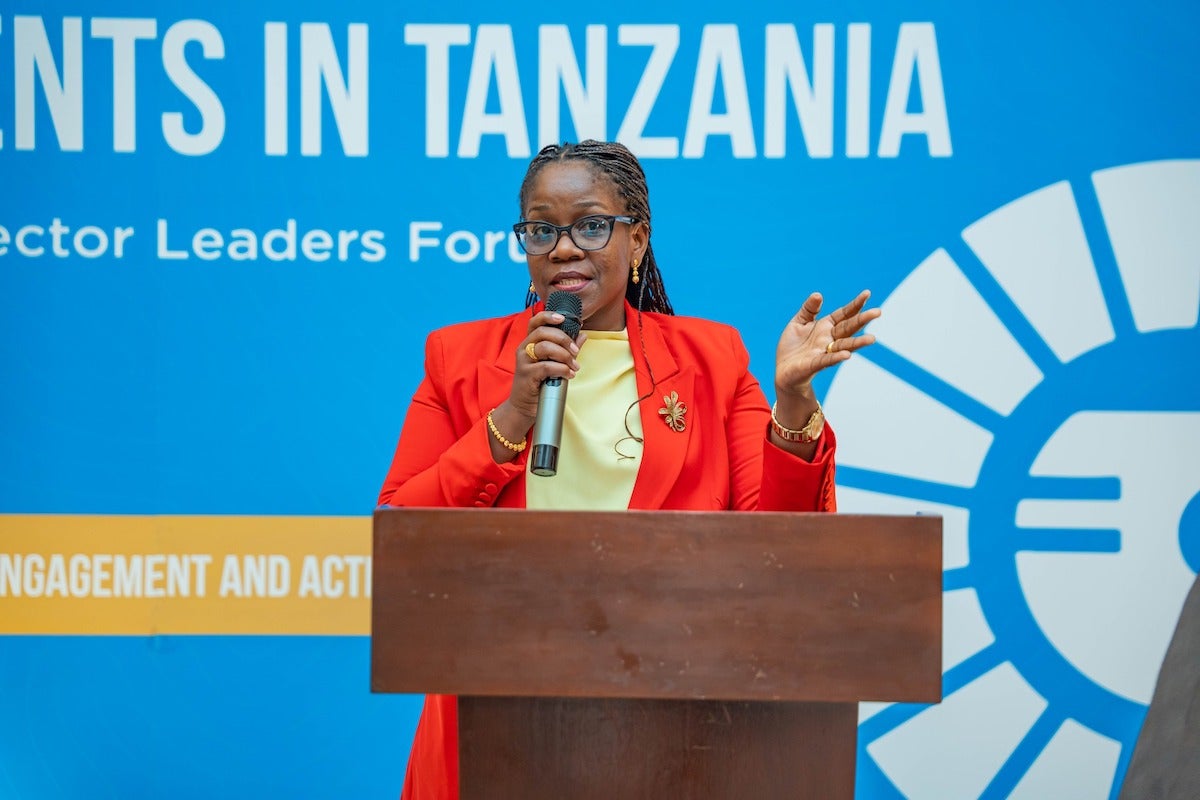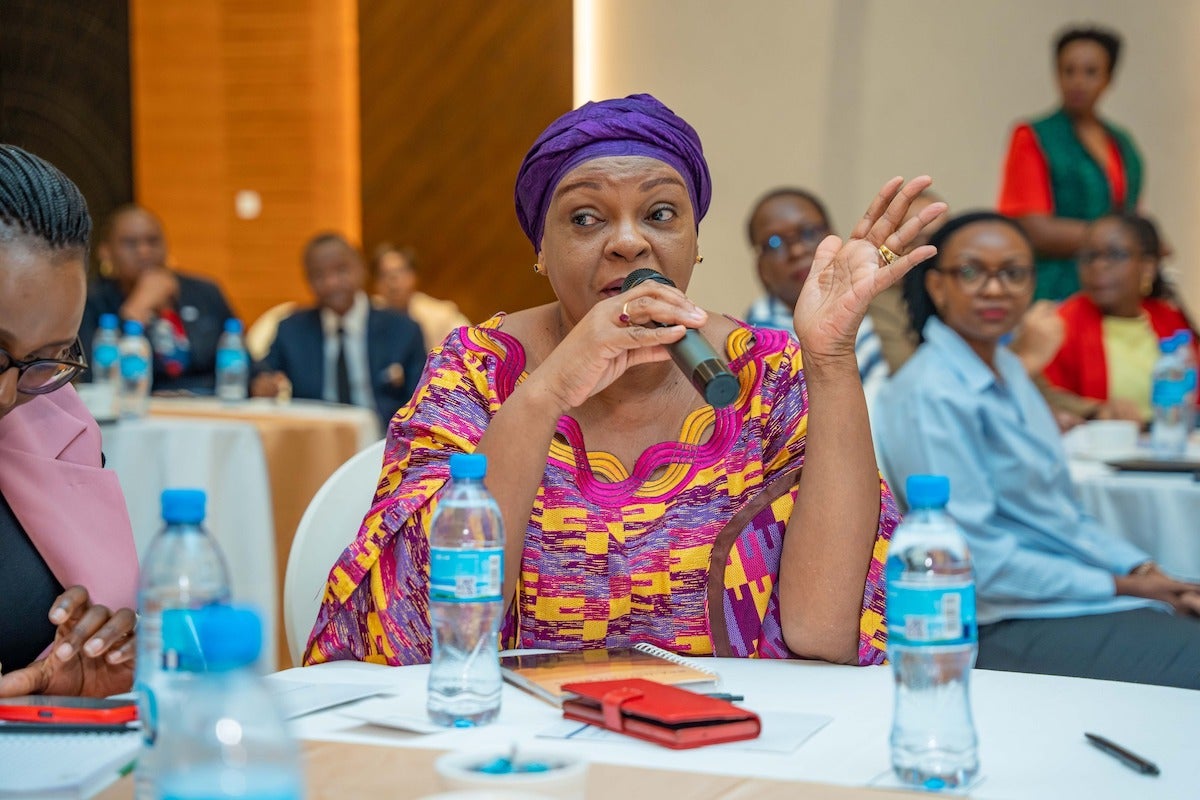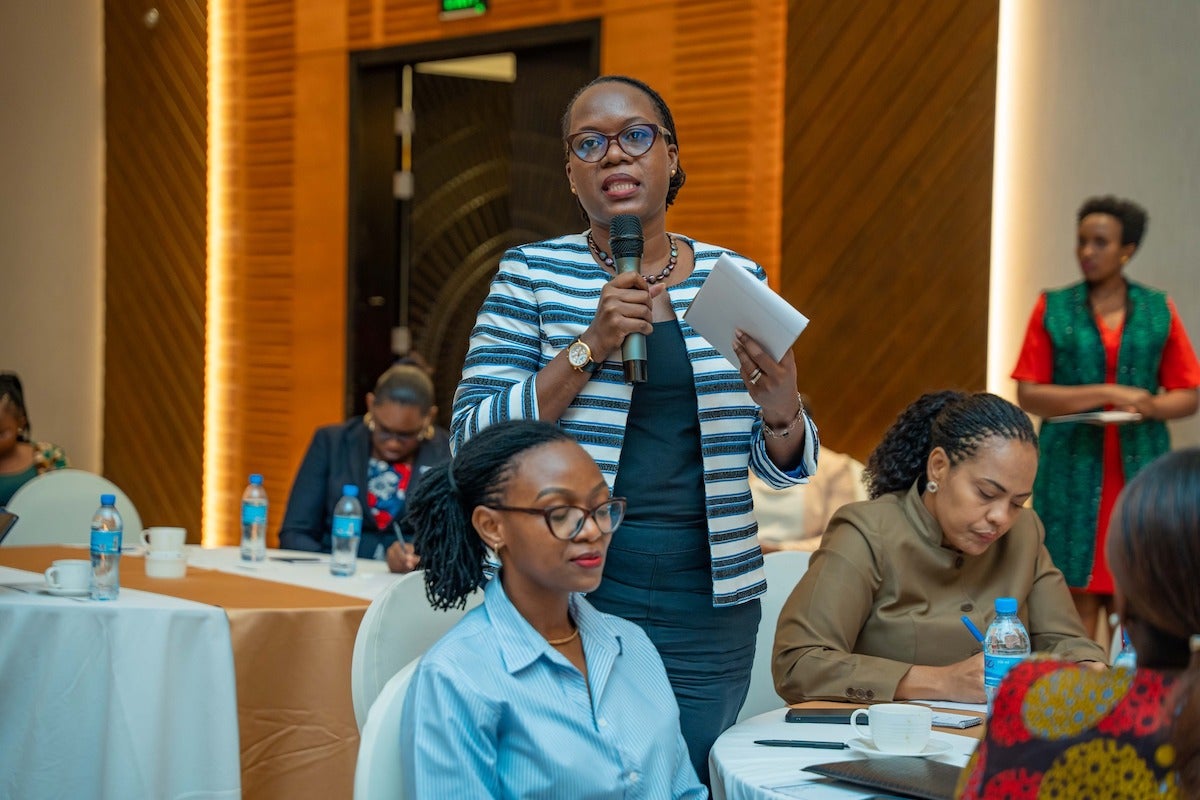Collaborating for change: civil society, private sector and academia drive national gender equality commitments in Tanzania
Date:

The journey to localizing the Generation Equality in Tanzania is making significant progress through the collective efforts of non-governmental organizations (NGOs), civil society groups, and the private sector. By the end of September 2024, this collaboration has resulted in over 250 pledges to advance gender equality initiatives.
In Tanzania, with support from UN Women, the GEF National Advisory Committee, and the Ministry of Community Development, Gender, Women, and Special Groups, the initiative has brought together members of the National NGOs Forum, private sector leaders, and innovation hubs to drive progress toward its transformative goals.
Promoting National Commitments
In August and September, four high-profile events showcased Tanzania’s national commitments to gender equality, attracting participation from hundreds of organizations and leaders. These stakeholders pledged to take concrete actions to advance economic justice and women’s rights, representing a pivotal milestone in the pursuit of Tanzania’s Generation Equality.
“These engagements represent a significant step in advancing and localizing Tanzania's GEF commitments. We interacted with CSOs, NGOs and private sector leaders to collaboratively translate the GEF global agenda into actionable strategies at the institutional level,” said Hon. Angellah Kairuki Chairperson GEF National Advisory Committee.
More than 50 private sector organizations committed to scaling up their investments in gender equality initiatives in Tanzania. Vice chancellors and senior leaders from 31 Tanzanian universities were brought together to discuss strategies for promoting gender inclusivity and integrating gender-responsive practices into academic programs. As a result, the universities committed to establishing Women’s Economic Empowerment Hubs and aligning their initiatives with the Generation Equality Forum (GEF) commitments.

Tanzania’s Progress in Empowering Women
Tanzania’s pursuit of gender equality builds on a foundation of decades-long progress, with new initiatives further accelerating this journey. Over the past 20 years, the country has reached significant milestones in economically empowering women. The female labor force participation rate increased from 67% in 2000 to 80% in 2019 - well above the Sub-Saharan African average of 63% and among the highest on the continent, according to the World Bank.
“Our hope is that these commitments will be achieved, since most of us have already made tangible progress,” said Emma Kawawa, CEO of Tanzania Women CEO Roundtable.
Transformative National Commitments
Tanzania’s Generation Equality Forum (GEF) commitments focus on transformative actions, including investments in gender-responsive public and private care services, the implementation of legal and policy reforms, and fostering an enabling environment for women’s empowerment. These initiatives aim to enhance economic justice by expanding access to decent work opportunities across both the formal and informal sectors.
Dr. Mitra Sadananda, Program Specialist of UN Women, emphasized that “The collaboration between the private sector, government, and civil society is critical for driving sustainable change. We look forward to continued engagement and to building a community of practice in Tanzania that celebrates and nurtures gender-responsive practices”.
Under President Samia Suluhu Hassan’s leadership, Tanzania has embraced the Action Coalition on Economic Justice and Rights as a framework for empowering women and girls. Through sectoral ministries and collaborations with stakeholders, the government is implementing targeted interventions to localize and advance GEF goals.
Accountability and Sustained Efforts
To drive progress, GEF Tanzania has introduced mechanisms to track and recognize gender equality efforts across sectors, including CSOs, NGOs, innovation hubs, academia, and the private sector. For instance, the Tanzania Private Sector Foundation (TPSF) has integrated gender equality actions into its 2024–2028 strategic plan. “We call on our member organizations and companies to reflect these actions in their business operations,” said Mr. Raphael Maganga, Chief Executive Officer of the Tanzania Private Sector Foundation (TPSF).
These national commitments aim to enhance women's access to and control over productive resources while promoting the design and implementation of gender-responsive macroeconomic plans, budget reforms, and stimulus packages.
As GEF Tanzania gains momentum, the collective efforts of all stakeholders are expected to transform ambitions into tangible outcomes, advancing economic justice and women's rights nationwide. The pledges made by commitment makers are anticipated to accelerate the implementation of national GEF commitments.
